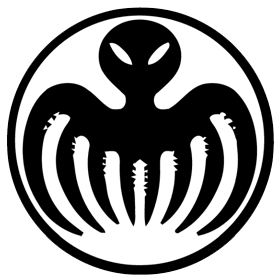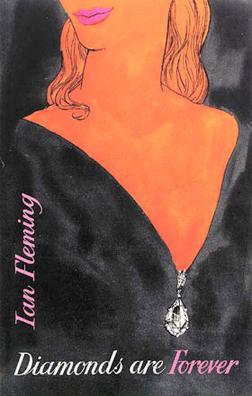External links
- Johnny Fedora Website
- Johnny Fedora Novels
- A look back at the espionage assignments of Johnny Fedora Desmond Cory's famous secret agent - published July 2008]
Johnny Fedora is a fictional British secret agent who was the protagonist of 16 novels published between 1951 and 1971. Written by Shaun Lloyd McCarthy, under the pseudonym of Desmond Cory, Fedora was dubbed by literary critics as the 'thinking man's James Bond'. Preceding Bond, Fedora was also a hired assassin ("hired to kill"), but for many the Fedora plots were more complex and intellectual. The son of a Spanish father and Irish mother, Fedora was driven as much by a need to avenge the death of his parents (at the hands of Spanish fascists) as by patriotism or loyalty to British Intelligence. He got his start working behind the lines during WWII, assassinating Nazis. The debonair Fedora was always a tough and competent agent, and his first adventures were written in a more light-hearted manner than the latter ones. Like Bond, he had passionate affairs with a wide variety of women around the world (though never as a ruse to gain intelligence), but his relationships tended to be more nuanced, and sometimes spanned several novels. The final books in the series featured his nemesis, Feramontov, a deadly and highly skilled Russian agent, whose ruthlessness went as far as trying to detonate a nuclear bomb in Spain. 1960's The Head, atypical of the series as a whole, featured Johnny, temporarily without any mission from his handlers, getting involved in a publicity stunt for a film that involved carting a massive statue of Jesus to the top of a high Spanish mountain.
Spy fiction is a genre of literature involving espionage as an important context or plot device. It emerged in the early twentieth century, inspired by rivalries and intrigues between the major powers, and the establishment of modern intelligence agencies. It was given new impetus by the development of fascism and communism in the lead-up to World War II, continued to develop during the Cold War, and received a fresh impetus from the emergence of rogue states, international criminal organizations, global terrorist networks, maritime piracy and technological sabotage and espionage as potent threats to Western societies. As a genre, spy fiction is thematically related to the novel of adventure, the thriller and the politico-military thriller.

The spy film, also known as the spy thriller, is a genre of film that deals with the subject of fictional espionage, either in a realistic way or as a basis for fantasy. Many novels in the spy fiction genre have been adapted as films, including works by John Buchan, le Carré, Ian Fleming (Bond) and Len Deighton. It is a significant aspect of British cinema, with leading British directors such as Alfred Hitchcock and Carol Reed making notable contributions and many films set in the British Secret Service.

Ian Lancaster Fleming was a British writer, best known for his postwar James Bond series of spy novels. Fleming came from a wealthy family connected to the merchant bank Robert Fleming & Co., and his father was the Member of Parliament (MP) for Henley from 1910 until his death on the Western Front in 1917. Educated at Eton, Sandhurst, and, briefly, the universities of Munich and Geneva, Fleming moved through several jobs before he started writing.

Q is a character in the James Bond films and novelisations. Q is the head of Q Branch, the fictional research and development division of the British Secret Service charged with oversight of top secret field technologies.

Ronald Howard was an English actor and writer. He appeared as Sherlock Holmes in a weekly television series of the same name in 1954. He was the son of the actor Leslie Howard.

SPECTRE is a fictional organisation featured in the James Bond novels by Ian Fleming, as well as the films and video games based on those novels. Led by criminal mastermind Ernst Stavro Blofeld, the international organisation first formally appeared in the novel Thunderball (1961) and in the film Dr. No (1962). SPECTRE is not aligned with any nation or political ideology, enabling the later Bond books and Bond films to be regarded as somewhat apolitical. The presence of former Gestapo members in the organisation can be considered as a sign of Fleming's warnings about Nazi fugitives after the Second World War, as first detailed in the novel Moonraker (1954). In the novels, SPECTRE begins as a small group of criminals but in the films, it is depicted as a vast international organisation with its own SPECTRE Island training base capable of replacing the Soviet SMERSH.

Eleanor Alice Hibbert was an English writer of historical romances. She was a prolific writer who published several books a year in different literary genres, each genre under a different pen name: Jean Plaidy for fictionalized history of European royalty, Victoria Holt for gothic romances, and Philippa Carr for a multi-generational family saga. She also wrote light romances, crime novels, murder mysteries and thrillers under pseudonyms Eleanor Burford, Elbur Ford, Kathleen Kellow, Anna Percival, and Ellalice Tate.

Danger Man is a British television series that was broadcast between 1960 and 1962, and again between 1964 and 1968. The series featured Patrick McGoohan as secret agent John Drake. Ralph Smart created the programme and wrote many of the scripts. Danger Man was financed by Lew Grade's ITC Entertainment.
Matt Helm is a fictional character created by American author Donald Hamilton (1916-2006). Helm is a U.S. government counter-agent, a man whose primary job is to kill or nullify enemy agents—not a spy or secret agent in the ordinary sense of the term as used in most spy thrillers.
Desmond Cory was a pseudonym used by British mystery/thriller writer Shaun Lloyd McCarthy
Ian Fleming Publications is the production company formerly known as both Glidrose Productions Limited and Glidrose Publications Limited, named after its founders John Gliddon and Norman Rose. In 1952, author Ian Fleming bought it after completing his first James Bond novel, Casino Royale; he assigned most of his rights in Casino Royale, and the works which followed it to Glidrose.
John Creasey was an English author known mostly for detective and crime novels but who also wrote science fiction, romance and westerns. He wrote more than six hundred novels using twenty-eight different pseudonyms.

Elleston Trevor was a British novelist and playwright who wrote under several pseudonyms. Born Trevor Dudley-Smith, he eventually changed his name to Elleston Trevor. Trevor worked in many genres, but is principally remembered for his 1964 adventure story The Flight of the Phoenix, written as Elleston Trevor, and for a series of Cold War thrillers featuring the British secret agent Quiller, written under the pseudonym Adam Hall.

Geoffrey Keen was an English actor who appeared in supporting roles in many films. He is well known for playing British Defence Minister Sir Frederick Gray in the James Bond films.

Diamonds Are Forever is the fourth novel by the British author Ian Fleming to feature his fictional British Secret Service agent James Bond. Fleming wrote the story at his Goldeneye estate in Jamaica, inspired by a Sunday Times article on diamond smuggling. The book was first published by Jonathan Cape in the United Kingdom on 26 March 1956.

Sydney Tafler was an English actor who after having started his career on stage, was best remembered for numerous appearances in films and television from the 1940s to the 1970s.

The Secret Ways is a 1961 American neo noir mystery thriller film based on Alistair MacLean's 1959 novel The Last Frontier. It was directed by Phil Karlson and stars Richard Widmark.
Frank Kane was an American author of detective fiction.